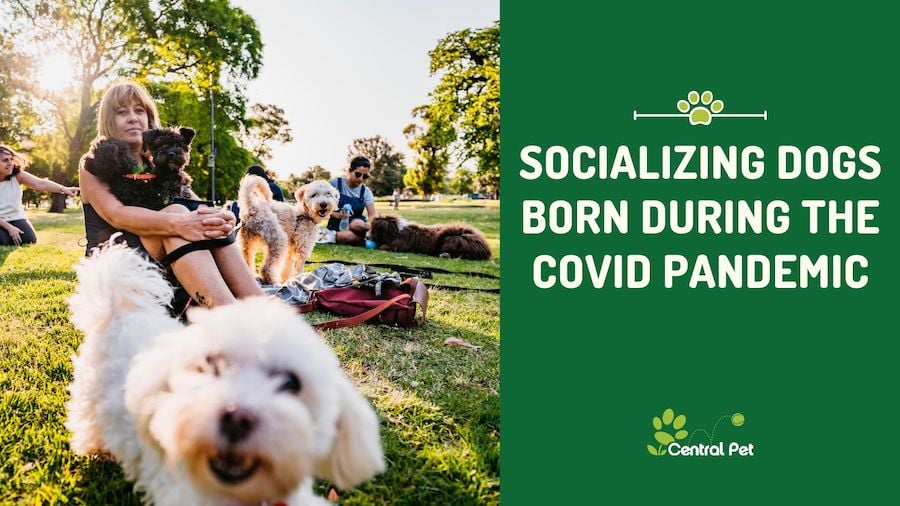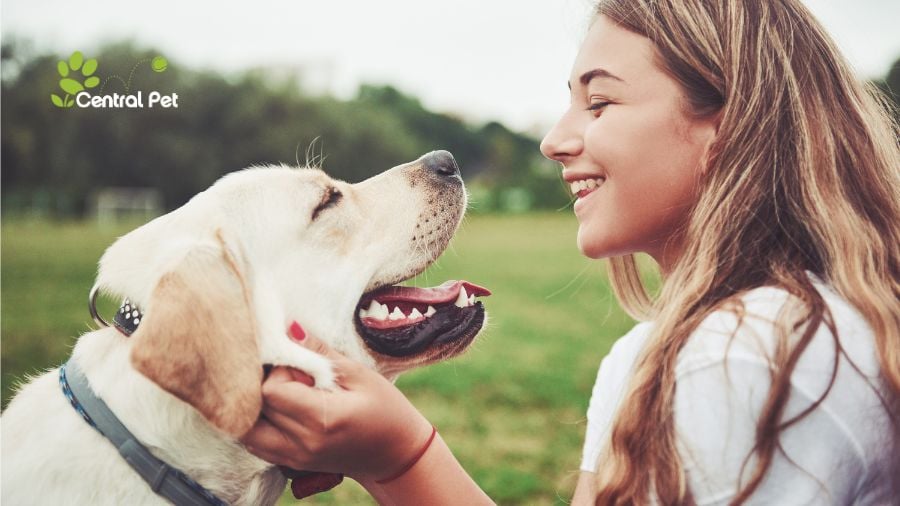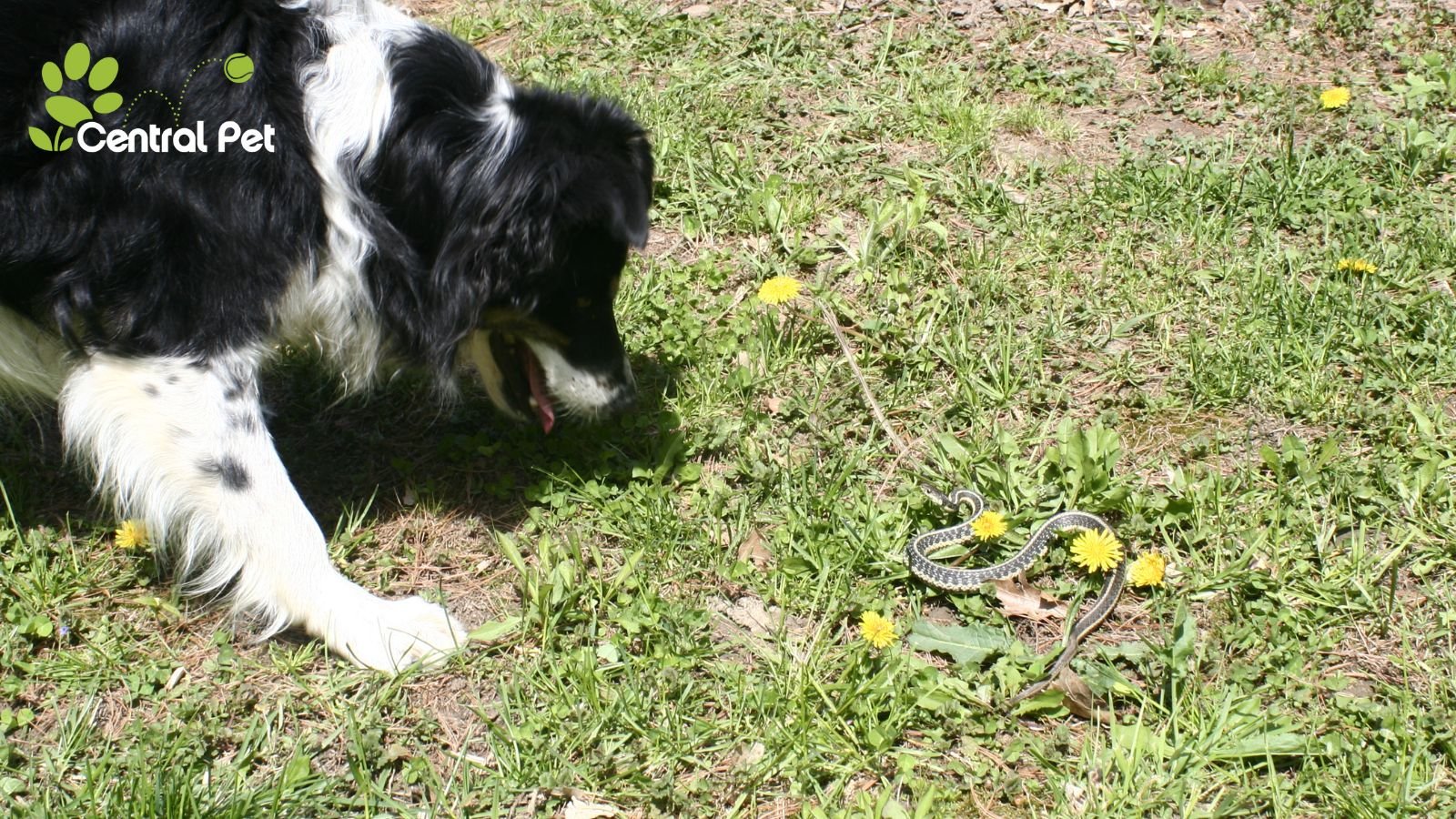Since the COVID pandemic ravaged the world, it has become more difficult to socialize puppies with other dogs and humans. The lack of exposure during those months, and sometimes years, has affected how dogs interact with people and other animals outside of your household, especially dogs who were young during the pandemic. Thankfully, there are several effective ways to encourage healthy socialization skills for dogs who were impacted by the pandemic’s isolation.
What is Happening With all of the Pandemic Puppies?
During COVID, people were bringing puppies home for companionship. Adoptions were made at record levels, but these dogs grew up in environments that didn't encourage proper socialization. With puppies stuck inside or socially distanced, they couldn't socialize with other dogs or humans other than the few in their homes.
Now that pandemic restrictions have been lifted. These pandemic puppies are getting used to socialization outside of their households. Unfortunately, some have developed destructive habits and are struggling to interact with other humans and dogs.
Why is Socialization Important?
Dogs are pack animals that need to be around other dogs and humans to feel like they belong. Lack of socialization can cause various behavioral problems, so puppies must be introduced to as many people and dogs as possible early on. Some of these issues include:
- Separation anxiety
- Increase in fearfulness
- Increased sensitivity to sound
- Destructive behaviors (such as chewing furniture)
Related Read: 5 Dog Behaviors That Seem Naughty But Are Really A Cry For Attention
What is the "Socialization Window"?
Puppies need to be socialized early because they have a critical window of socialization between 3-16 weeks of age, during which their personality and social skills develop. If a puppy is not properly socialized by 16 weeks old, they may struggle to develop into a well-adjusted adult dog. The COVID puppies, who are now young dogs, missed out on their socialization window.
Socialization helps puppies to learn certain behaviors, such as being polite to another dog, sharing toys, and proper ways to “play” with one another. If your dog missed that window for socialization, don’t worry. You can still do it with some special help!
As you start to work on socialization, be sure your pup is fully vaccinated. This makes it safer for your dog, other dogs you meet, and other humans your dog comes into contact with. The general rule veterinarians suggest is that a puppy should have had at least two (preferably three) rounds of vaccinations before they venture out. Allowing the vaccines to take effect helps to reduce the risk of them catching the diseases that vaccines are designed to eliminate.
How to Socialize My Dog After the Initial Window
While socialization is important during the first four months, it’s not the only opportunity for socializing. Just like humans, dogs can learn new skills at any point. It's just a matter of putting in the time and effort.
All dogs can benefit from socialization regardless of age, breed, or gender. All that is needed is to provide new experiences and positive interactions with other dogs and humans. It may be harder for older dogs to learn new things, but it is still possible. Even senior dogs can benefit from socialization; it all depends on your dog's health and if they are mentally capable of learning new skills.
What Should I Do if My Dog Needs to Be Socialized or Re-Socialized?
Pet parents can help socialize or even resocialize their dogs in several ways.
Taking your dog for outdoor exercise is a great option. Some pet owners also look for opportunities to take their dog on hikes in on or off-leash areas to allow for a change in scenery (and smells) for your animal. For these options, be sure that you understand your local rules and regulations regarding pet vaccinations and leash laws.
Get to Know Your Dog
The first step to helping your dog is simply getting to know them. Learning about their likes and dislikes can be a great way to connect and get to know their emotional responses. This will also help you both get more comfortable with each other. If they seem drawn to one particular toy or game, it's probably because that's something they have never seen before and are curious about. If they aren’t interested in playing with anything, that might mean they don't feel safe enough around you yet.
It’s important for pet parents to be able to identify when their dog is happy and relaxed and when they are not. This helps you understand your dog’s reaction to new people, dogs, or experiences.
Invite Visitors
One of the best ways to improve your dog's social skills is through interactions with people. Dogs get used to the familiar people around them but often struggle with strangers. It's important they become used to unfamiliar faces coming up to them. When bringing new guests over to your home for a visit and you have a yard, start with the visitor just in the yard. Once everyone is comfortable outside, move on to the visitor entering the house.
Use Doggy Daycare for More Socialization Opportunities
When pets get regular doses of socialization, they are more likely to feel at ease in various situations. Doggy daycare offers a fun, healthy environment for your pup to spend time with other dogs and humans. Plus, dogs who are regularly exercised and spend some time socializing are less likely to participate in destructive behaviors like chewing. Many pet owners who have their animals in doggy daycare find that their relationship with their pets improves because their dog’s need for exercise is already met.
To help ease pups into doggy daycare, there is some time spent with the daycare team when they will evaluate your dog to see how they do. It can be a little stressful at first, but the daycare team knows what to look for. This is sometimes referred to as a “temperament test.” Don’t worry, though. It’s just a chance to see if doggy daycare would be a good fit for your pet.
Related Read: Minding Their Canine Manners: Doggy Daycare Is Great Social Enrichment
Bring in the Dog Training Experts
If your dog doesn’t seem to be adjusting to being around people using some of these other tactics, consider talking to a dog trainer. With their expertise and experience, they will be able to tell you the best way for your pup to start meeting other dogs again without having too much of an overload. Dog trainers can customize a plan to help your dog become more social. Central Pet has the option to enroll your dog in group training classes or one-on-one lessons with one of our trainers in the Tucson area. With years of experience and personalized training, dog trainers are one of the best ways to improve your dog's social skills!
If you are looking for more ways to help improve your puppy's social skills, check out our blog on How to Socialize Your Puppy Successfully.
If you’d like to try doggy daycare, request a temperament test at our locations in Tucson.





